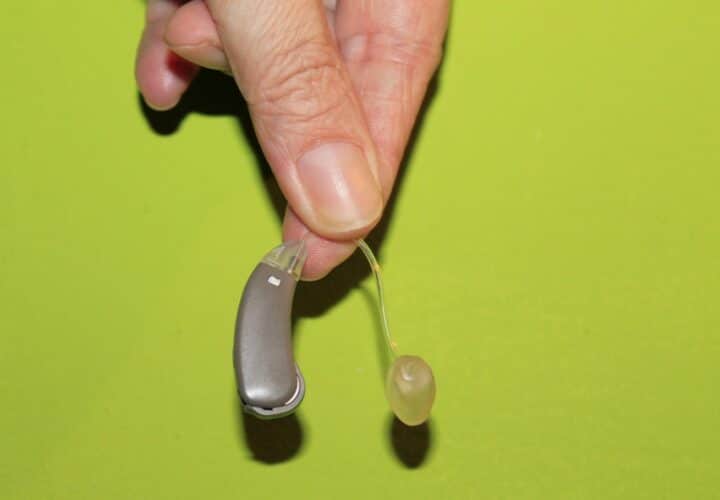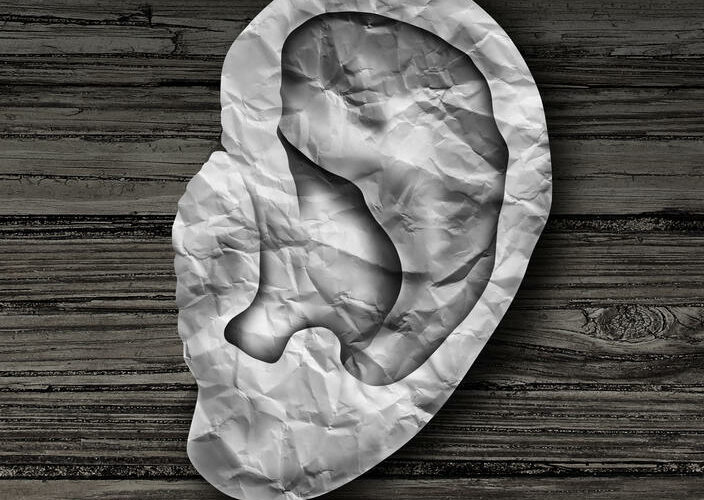Hearing aids may be more beneficial for your health than just improving your auditory perception. A new study out of University of Michigan finds that older people with hearing loss who get hearing aids may actually decrease their risk of developing dementia.
The study, which examined 115,000 participants over the age of 66, also found that hearing aids helped lower the risk of being diagnosed with depression and anxiety. Hearing aids also showed a positive effect on preventing falls and injuries.
Dementia and Hearing Loss
Dementia has been linked to hearing loss in the past. In fact, the loss of your ability to hear well in older age is considered a risk factor for dementia.
One past study found that hearing loss could actually be a warning sign of cognitive decline in men. That’s echoed by another study, which concluded that people with central hearing loss were twice as likely to have mild cognitive impairment compared to people without hearing loss.
It seems that a loss of certain senses, including eyesight, is a predictor for developing dementia, rather than the other way around. Preserving your vision and hearing, meanwhile, can potentially protect your mental cognition by up to 75 percent.
In the latest study, the researchers delved more into how much hearing aids could protect people from cognitive issues — and why more people weren’t wearing them. They found that only 12 percent of people with diagnosed hearing loss actually ended up getting hearing devices.
“We already know that people with hearing loss have more adverse health events, and more co-existing conditions, but this study allows us to see the effects of an intervention and look for associations between hearing aids and health outcomes,” Elham Mahmoudi, a health economist at the University of Michigan Department of Family Medicine and lead author of the study, said in a press release. “Though hearing aids can’t be said to prevent these conditions, a delay in the onset of dementia, depression and anxiety, and the risk of serious falls, could be significant both for the patient and for the costs to the Medicare system.”
Disparities in Hearing Aids
The latest study also showed wide disparities, or gaps in healthcare and access, among people with hearing loss. Men with hearing loss were more likely to get a hearing aid: 13.3 percent of them did, compared to only 11.3 percent of women.
The racial disparities were even bigger. While 13.6 percent of white people with hearing loss got devices, only 9.8 percent of African Americans and 6.5 percent of Latinos did. There were also gaps in geography, with more people receiving hearing aids in the north-central part of the country compared to the mountain states.
The factors behind this link between hearing aids and cognitive protection are varied and complex, the researchers note. It’s possible that losing your hearing and not remedying it could result in a loss of balance and stimulation to the brain. It may also limit your independence and cause you to become more socially isolated.
What the researchers do know, however, is that providing people with hearing aids has evidence behind it as a tool for potentially slowing down dementia development.
“Correcting hearing loss is an intervention that has evidence behind it, and we hope our research will help clinicians and people with hearing loss understand the potential association between getting a hearing aid and other aspects of their health,” Mahmoudi said in the press release.
It’s possible that many people lacking access to health insurance may be avoiding getting hearing aids. The Food & Drug Administration (FDA) approved the development of a new over-the-counter hearing aid, which will be available in 2020 and may possibly make this device more available to people. Whether this will boost the number of people with hearing loss to get treatment for it, however, has yet to be seen.





